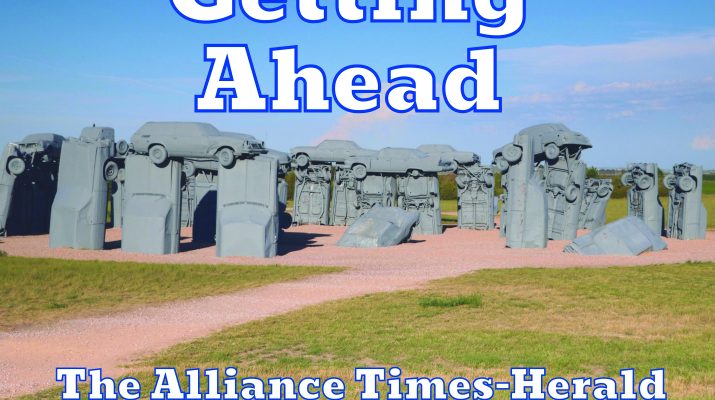For the last four years Senator Steve Erdman, representing LD 47 which includes Box Butte County, has introduced legislation to create a Consumption Tax. A consumption tax is another name for sales tax which, along with excise tax, is one of the most regressive taxes. The percentage of their income paid for regressive taxes is much higher for low-income people than for those with high incomes.
Legislative Bill (LB) 79 proposes the creation of the EPIC Option Consumption Tax. EPIC stands for the Elimination of Property, Income and Corporate taxes. The EPIC Option Consumption Tax would repeal all state taxes except consumption (sales) taxes and excise taxes.
The EPIC Option Consumption Tax imposes a tax on the sale of new goods and services. Used goods would not be taxed. There is no tax on business-to-business transactions or investments. No good or service may be taxed in more than one way, so if there is an excise tax, there will be no consumption tax.
For each revenue or spending bill, the State has a legislative fiscal analyst estimate, which was posted on March 1, 2023. Reading this analysis clarifies some things. LB79 terminates the following: Tax-Increment Financing, Property tax, Inheritance tax, State and Local Sales taxes, State Income tax, The Homestead Exemption, The Tax Equity and Educational Opportunities Support Act (TEEOSA, which calculates state funding for public schools), and the Community College Aid Act.
While none of us are excited about the opportunity to pay taxes, are we sure we want to eliminate all of these and the incomes they produce for our state and local governments?
There are always things exempted from sales tax, and the new consumption tax includes some of those exemptions. These include the sale of land; goods or services where you have paid an excise tax; the purchase of taxable property or services for business purposes, investment purposes, or educational purposes; the purchase of used property; the purchase of groceries for off-premises consumption.
Let’s look at that list more closely. You wouldn’t have to pay sales/consumption tax on groceries, which is always exempted because poor people pay such a high percentage of their income on food. No tax on used goods, but used cars are the only used good currently taxed. No tax on the sale of land. No tax on investments (which would apply to no people in poverty). No taxes on things businesses buy. Some items like airfare or Internet access cannot be taxed under federal law.
There would be no consumption tax on school tuition or items needed for school. But how do you define items needed for school? Textbooks? Computers? Notebooks? Uniforms?
What would be added to taxation? Purchases by federal, state, and local governments. Purchases by churches or other non-profits. New homes or home improvements. Services like haircuts, car repairs, electrical, plumbing, financial services, etc.
Insurance companies would not pay tax on medical procedures they cover. But if something is not insured, it will be taxed. This includes everything for people who do not have insurance, or who aren’t insured for dental work, vision, prescription drugs, or hospital care. Also taxable, payments to assisted living and nursing home facilities, which run thousands of dollars every month.
LB 79 establishes a starting consumption tax rate of 7.5% beginning January 1, 2026. The Legislature retains sole authority to change the rate. Businesses collecting the tax would keep .25% to cover their costs. Local governments can vote to have an additional sales tax. Open Sky Policy Institute has calculated that the tax rate would actually need to be 22.1% to replace the funds lost from all the taxes being eliminated.
Who would benefit from the passage of LB79? Wealthy people, who spend only a fraction of their total earnings and invest the rest. Businesses, including agriculture, who have no obligation to pay the tax and will have their other taxes eliminated. Government agencies currently responsible for managing the different taxes currently paid. People who can travel are supposed to submit a form and pay the tax money owed for every out-of-state purchase, but I doubt there will be much compliance, especially if they paid sales tax in the state where they made the purchase.
Who is hurt? Local government, including counties, cities, and schools; their purchases are currently exempt, but wouldn’t be any longer. Middle-income people, who will end up making the largest payments for this tax. And especially low-income people, those who live in poverty, who have to spend virtually everything they earn to survive.

